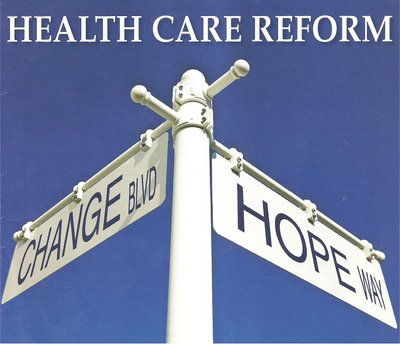
Revolutionizing Care: Healthcare Reforms
In the ever-evolving landscape of healthcare, the call for change echoes loudly. Healthcare reforms emerge not as mere adjustments but as catalysts for a profound transformation in how we approach, deliver, and experience healthcare. Let’s delve into the realms of healthcare reforms, where innovation, inclusivity, and improved outcomes take center stage.
Navigating the Paradigm Shift: Embracing Change
Healthcare reforms mark a paradigm shift, urging us to embrace change rather than resist it. It’s a call to move beyond traditional models and embrace innovative solutions that enhance the efficiency and effectiveness of healthcare delivery. From reimagining care models to leveraging technology, the goal is to create a system that adapts to the dynamic needs of individuals and communities.
Patient-Centric Focus: Placing Individuals at the Core
At the heart of healthcare reforms lies a patient-centric focus, placing individuals at the core of care. It’s a departure from a one-size-fits-all approach to one that recognizes the unique needs and preferences of each patient. Reforms aim to empower individuals, making them active participants in their healthcare journey and fostering a relationship that goes beyond the treatment of illnesses.
Explore the dynamics of Healthcare Reforms for a comprehensive understanding.
Innovation in Delivery Models: Redefining Healthcare Structures
Healthcare reforms drive innovation in delivery models, redefining traditional healthcare structures. From the rise of telemedicine to community-based care initiatives, the aim is to make healthcare more accessible and tailored to diverse populations. Reformers challenge the status quo, envisioning a healthcare landscape that prioritizes prevention, early intervention, and continuity of care.
Addressing Socioeconomic Disparities: A Commitment to Equality
One of the key tenets of healthcare reforms is the commitment to addressing socioeconomic disparities in access to care. Reforms aim to dismantle barriers that prevent certain communities from enjoying the benefits of healthcare services. Whether through targeted outreach programs, affordable healthcare initiatives, or community clinics, the goal is to ensure that every individual, regardless of socioeconomic status, has equitable access to quality care.
Technological Integration: Harnessing Digital Advancements
The digital age plays a pivotal role in healthcare reforms, with a strong emphasis on technological integration. Electronic health records, artificial intelligence, and health apps become tools for enhancing efficiency, accuracy, and communication within the healthcare system. Technological advancements not only streamline administrative processes but also improve diagnostic capabilities and patient engagement.
Preventive Healthcare: Shifting the Focus Upstream
Healthcare reforms advocate for a shift in focus from treating illnesses to preventing them in the first place. Preventive healthcare becomes a cornerstone, encouraging regular check-ups, screenings, and lifestyle interventions. By prioritizing wellness and early intervention, reforms aim to reduce the burden of chronic diseases and improve overall population health.
Enhancing Primary Care: A Foundation for Well-being
A reinvigorated focus on primary care becomes a linchpin in healthcare reforms. Strengthening primary care services is seen as a foundation for well-being, providing a gateway for individuals to access comprehensive and coordinated healthcare. This approach not only improves health outcomes but also reduces the strain on emergency services and specialized care.
Multi-Stakeholder Collaboration: Building Alliances for Change
The complexity of healthcare challenges necessitates multi-stakeholder collaboration. Healthcare reforms encourage partnerships between government bodies, healthcare providers, insurers, and community organizations. By fostering alliances, reforms seek to create a synchronized approach that addresses the diverse needs of a population and taps into the collective expertise of various stakeholders.
Evaluating and Adapting: A Continuous Process
The journey of healthcare reforms is not a one-time event but a continuous process of evaluation and adaptation. Reformers recognize that the healthcare landscape is dynamic, shaped by evolving demographics, emerging technologies, and changing health priorities. Regular assessments and a commitment to learning from experiences guide the ongoing refinement of healthcare policies and practices.
Embark on a journey into the realm of healthcare reforms, where the call for change echoes as a powerful anthem for a better, more inclusive, and effective healthcare system. It’s a journey that challenges conventions, embraces innovation, and places individuals at the forefront of a healthcare landscape that strives for excellence in well-being.


